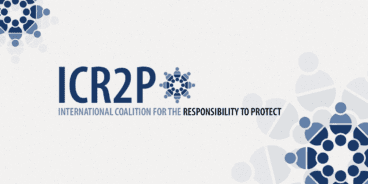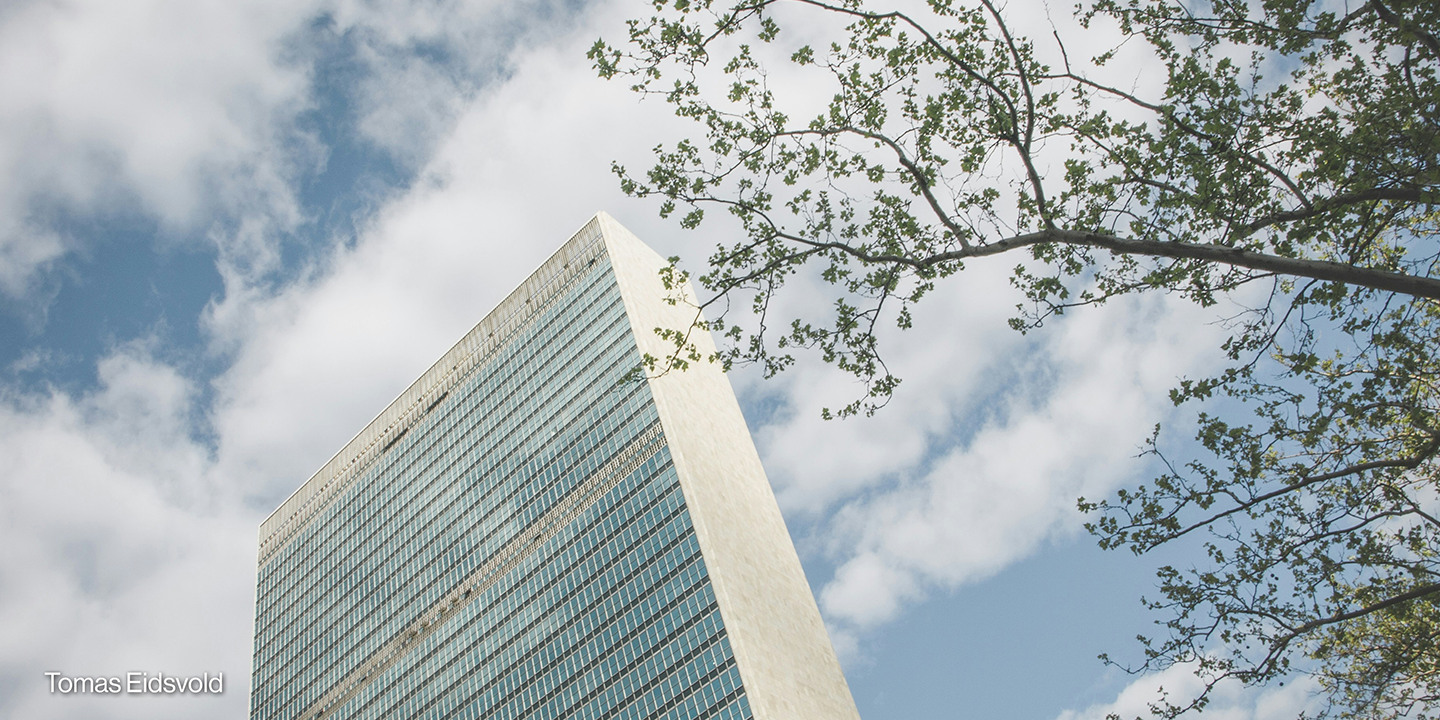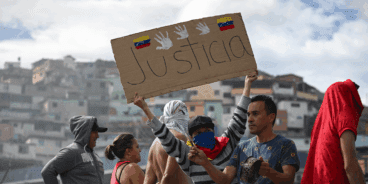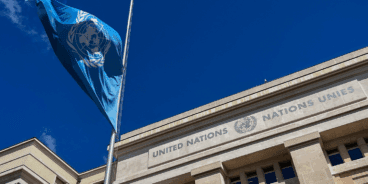

At 80, the UN must hold the line on protection
This op-ed was originally published via Devex here.
This year, the United Nations turns 80. In its lifetime, the U.N. has been and remains to be a crucial lifeline for millions around the world suffering human rights violations, persecution, conflict, and more. But instead of commemorating its legacy, this 20th-century institution has been buckling under the weight of 21st-century challenges and contemplating dramatic reform.
If the U.N. is to live up to its promise, reform must be more than structural. It must be transformational and intentionally embed human rights and atrocity prevention across every dimension of its work.
Long rebuked for being outdated, the U.N. faces a liquidity crisis amid mounting global upheaval. The past 15 years have seen a sharp rise in violent conflict, commission of atrocities, and attacks on human rights and international law. Hard-won development progress is stalling, even reversing, in many parts of the world, and the U.N.’s humanitarian work is on the verge of collapse. Seemingly unable to do more than shout from the sidelines, the U.N.’s capacity for protection has been questioned by local communities and governments.
However, there is a danger that the moment may pass for crafting a strategic vision, grounded in the U.N., fulfilling functions that cannot be easily transferred: norms, values, and protection, while governments and U.N. officials narrowly focus on funding challenges.
In March, Secretary-General António Guterres launched the UN80 Initiative. Billed as a comprehensive reform effort, it has so far reflected a rushed, cost-cutting exercise rather than a values-driven renewal. The conversation has been dominated by efficiency over harnessing the U.N.’s purpose. The mandate implementation report released earlier this month is a case in point: It focuses on process and quantitative data, shorn of substance and causal analysis.
While the U.N. Secretariat’s caution is understandable — mandates are set by governments — this is dangerous. The U.N.’s crisis is not solely financial. It is a crisis of purpose.
How reform begins signals what it values. At present, UN80 risks losing what matters: The U.N.’s enduring promise “to save succeeding generations from the scourge of war.”
This is not an abstract promise; it is what people around the world understand the U.N. to mean. The U.N. was conceived to uphold peace, protect human rights, and advance international cooperation in the face of crises. Since 2005, when member states committed to upholding the “responsibility to protect” during the U.N. World Summit, the U.N. has been further mandated to protect populations from atrocity crimes — namely, genocide, war crimes, crimes against humanity, and ethnic cleansing.
Bureaucracy has played its part in the system’s failure to marshal its full capabilities for prevention, protection, and accountability. Nevertheless, the U.N. has also become a convenient lightning rod. It is the member states that call the shots and hold the purse strings. States have expanded the U.N.’s to-do list, creating some 40,000 mandates, while dragging their feet on reform, withholding their dues, and underfunding appeals. Recent decisions by the United States and other donors have turned this perennial challenge into an existential one.
States have also preserved a structure that consolidates the inequity and injustice of the past century, and that favors solutions that are politically “easier” to achieve. States, and particularly the Security Council, have found some agreement on humanitarian access, while failing to confront the deliberate actions of those driving violence and atrocities. Humanitarians themselves have stressed that while they can address immediate needs, more consequential solutions are required.
So how can we move forward?
First, the U.N. should look at how departmental mergers could drive closer cooperation across its three pillars of peace and security, development, and human rights. This should include the country level, where risks of repression and identity-based exclusion, and violence often go unchallenged.
Second, while necessary, such mergers must not compromise expertise and functions. Leaked proposals have touted the possibility of collapsing the mandates on the responsibility to protect, genocide protection, sexual violence in conflict, children and armed conflict, and violence against children into the U.N. Office of the High Commissioner for Human Rights. This risks further diluting the U.N.’s protection work and its ability to interface effectively with political bodies.
Two of these mandates, the special advisers on genocide prevention and responsibility to protect, were intentionally created as advisory rather than operational roles. Their value lies in enabling the U.N. to transcend daily operations and focus on long-term, cross-cutting, and intersectional risks faced by populations.
Atrocity prevention requires specific tools, risk analyses, and political will. Conflict prevention, which prioritizes resolving disputes, and human rights promotion, which focuses on incremental change, often miss the urgency of action required to prevent atrocities. Any central hub for protection must continue to ensure that warnings of atrocity crimes are recognized, and that the U.N. secretary-general is equipped to respond with credibility.
Third, reform discussions must include civil society and communities most affected by the implementation of mandates. Unlike past efforts, this moment demands genuine inclusion, accountability, and innovation, rooted in responding to the voices of those long unheard. Their insights are essential in assessing which mandates are truly delivering impact on the ground, which may no longer serve their intended purpose, which tasks can — and should — be transferred to local players, and how this transition can be conducted with dignity and protection at its core. We cannot afford to impose a hasty approximation of “localization” driven by financial considerations, rather than need.
And finally, we must move from “efficiency” to “purpose” and look at those functions that cannot be easily transferred: norms, values, and protection. In this age of unraveling — when global shocks and shifts are forcing us to renegotiate our values — these are perhaps the most important functions for the U.N. to preserve.
Time and again, those living through atrocities have made clear that despite its shortcomings, the U.N. remains an invaluable avenue for progress when domestic systems fail — sometimes the only one.
In order for the U.N. to shape a renewed vision, it must begin with the courage to admit what isn’t working, the will to change it, and the deep belief that the U.N. has an intrinsic value and so much it can still achieve. This must be anchored not in the comfort of consensus, but in the conviction that multilateralism only matters if it protects people.
Related Content


